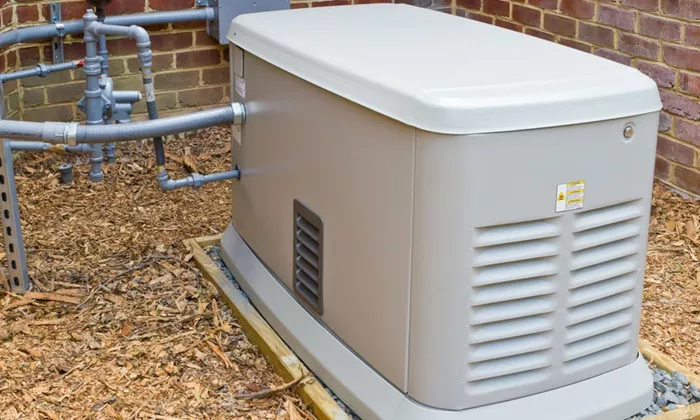When the power goes out, a home generator can provide the backup you need to keep essential appliances running. However, selecting the right generator size can be a challenging task. This article will guide you through the process of calculating your home’s power requirements, understanding different types of generators, and choosing the right size to meet your needs.
Power Requirement Calculation
The first step in selecting the right generator is to calculate how much power you need. This involves determining the total wattage required to run essential appliances and systems in your home.
Identify Essential Appliances and Systems
Start by listing all the appliances you would like to keep running during an outage. This can include refrigerators, lights, heating or cooling systems, medical equipment, and more. Each of these devices consumes a certain amount of power, usually measured in watts (W).
Account for Starting Watts
Many appliances, such as refrigerators, air conditioners, and pumps, require more power to start than to run continuously. This is known as “starting watts.” When calculating the total wattage needed for your generator, you must account for both running and starting watts.
For example:
A refrigerator may consume 800W during normal operation but require 2000W to start.
An air conditioner might need 2000W to run, but require 3000W at startup.
Make sure to add the higher starting wattage for each appliance that requires more power to start.
Types of Generators
There are two main types of generators suitable for home use: portable generators and standby generators.
Portable Generators
Pros
Cost-effective: Portable generators are generally more affordable than standby generators.
Flexibility: You can move them around to different locations, making them useful for various needs.
Ease of installation: Most portable generators can be plugged into appliances using extension cords.
Cons
Manual operation: You need to turn them on and off manually, which can be inconvenient during an outage.
Limited capacity: They may not be powerful enough to run all household appliances simultaneously, especially in larger homes.
Standby Generators
Pros
Automatic operation: Standby generators automatically turn on when power is lost, providing a seamless transition.
Higher capacity: They are usually larger and more powerful, capable of running the entire home.
Long-term reliability: Standby generators are designed to operate for extended periods, making them ideal for prolonged power outages.
Cons
Higher cost: Standby generators are more expensive than portable units.
Permanent installation: They require professional installation and are typically powered by natural gas or propane.
Sizing and Capacity
When selecting a generator, it’s essential to choose one that has sufficient capacity to handle your peak power demand without overloading.
Guidelines for Choosing the Right Size
Determine your total wattage: As calculated earlier, add up the wattages of all the appliances you want to power.
Account for starting watts: Consider appliances with high starting wattage.
Factor in safety margin: It’s a good idea to add 20-25% to your total wattage to ensure the generator can handle sudden surges in power demand.
Examples of Generator Sizes
5,000 watts: Suitable for powering essential circuits like lights, refrigerator, and a few small appliances.
10,000 watts: Ideal for powering an entire home, including major appliances like the HVAC system, refrigerator, lights, and more.
15,000 watts or more: Necessary for larger homes or if you need to run heavy-duty equipment or multiple appliances at once.
Key Features to Look for in a Home Generator
When choosing a generator, consider the following features to enhance convenience and performance:
Automatic Transfer Switch (ATS)
This feature automatically switches your home’s power supply from the grid to the generator when an outage occurs.
Fuel Type Options
Common fuel types include natural gas, propane, and diesel. Natural gas is often the most convenient option if available, while propane and diesel can provide longer runtimes.
Remote Monitoring
Some generators allow remote monitoring via smartphone apps, so you can track performance and maintenance needs.
Noise Levels
Generators can be noisy. Look for models with quieter operation if noise is a concern.
Installation and Maintenance
Installation
For safety and optimal performance, a home generator should be professionally installed. The installation involves determining the correct location, ensuring proper ventilation, and connecting the generator to your home’s electrical system.
Location: The generator should be placed in a well-ventilated area, away from windows and doors to avoid exhaust buildup.
Ventilation: Ensure the generator has adequate airflow to prevent overheating.
Professional Installation: A licensed electrician should handle the installation to ensure safety and code compliance.
Maintenance
Regular maintenance is essential for keeping your generator in good working condition:
Oil changes: Just like your car, a generator needs periodic oil changes to ensure smooth operation.
Filter replacements: Air and fuel filters should be changed regularly.
Testing: Run the generator monthly to ensure it’s functioning properly and ready for an emergency.
Expert Insights
“Choosing the right generator is all about understanding your needs and the size of your home,” says David Garcia, a certified electrician with over 20 years of experience. “My advice is to always overestimate your wattage needs. It’s better to have a generator that’s too powerful than one that can’t meet your demands.”
Additional Tips
Budgeting: A home generator is an investment. Portable generators typically cost between $400-$2,000, while standby generators can range from $3,000 to $10,000 or more. Don’t forget to factor in installation costs.
Ensure you’re purchasing from a trusted dealer and consider professional installation services. Look for customer reviews and certifications to gauge quality.
Conclusion
Selecting the right generator for your home involves careful planning and calculations. By determining your total wattage needs, understanding the different types of generators, and considering key features, you can make an informed decision that ensures your home stays powered during an outage. Whether you choose a portable or standby generator, proper installation and maintenance will ensure your backup power source is ready when you need it most.

